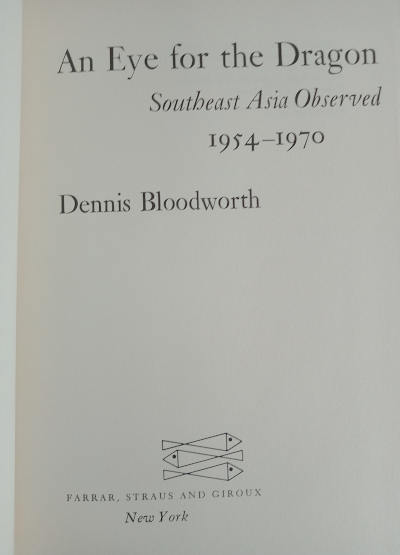About the book (from dust jacket):
Tucked between India and China is a bulge known as Indochina, and south and west of this bulge are the Malayan Peninsula, the three thousand islands of Indonesia, and the seven thousand islands of the Philippines. The subject of An Eye for the Dragon is this whole, seemingly unrelated miscellany of states that reach out from the Asian landmass and look like nothing so much as a man leaning out of the ballooning continent to fling a large armful of litter into the sea. The name of this pattern of land and water is Southeast Asia.
The author’s aim is to give the reader a taste of this subcontinent. Mr. Bloodworth explains Southeast Asia’s turbulent contemporary history in terms of the habits of thought of the diverse peoples of the area, habits which have been shaped by their history, philosophies, religions, and social traditions. He examines the influence on events of Asian superstition, poverty and nepotism, of attitudes toward smuggling and piracy, graft and “squeeze”, women, sex, astrology, and death, and shows how these mores constantly upset the logical calculations of the white man from the West.
The book examines the failure of democracy in Southeast Asia, the area’s flirtation with Communism, and its search for a third form of society. The book considers the peripheral influences now at work – China, Russia, Japan, and the United States – but it is mainly concerned with the comedies and tragedies of the subcontinent itself, from the megalomania of Sukarno to the morass of Vietnam.64



